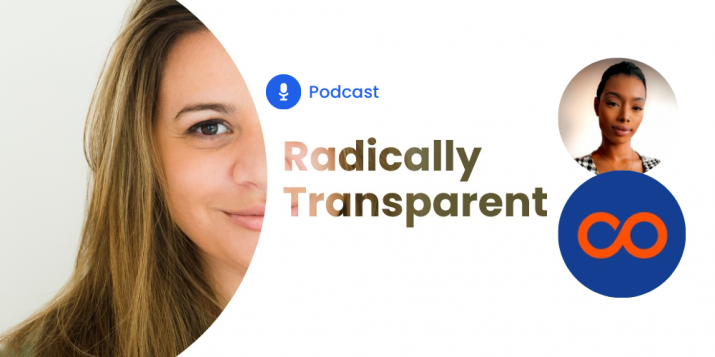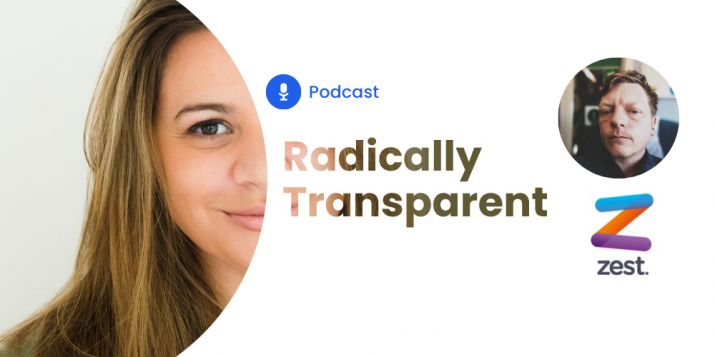
5 Optimizations for social media to improve SEO
Table of contents
When you think of search engine optimization, terms like meta-descriptions, sitemaps and link building probably come to mind. One term that isn’t usually at the top of a B2B marketer’s SEO lexicon is social media.
For years, SEO involved optimizing the content displayed on your website and then pushing that content to as many external sites as possible. However, as social media rose in use, search engine algorithms developed new ways to rank sites and content, taking into consideration the new ways modern marketers are sharing and rating content.
One of the challenges search engines like Google and Bing have always tried to overcome is understanding which external links exist solely for SEO purposes and which links represent a true indication that the source content is of value to the readers. Unfortunately, 95% of links from SEO link building never bring a single new visitor to your website.
To help evaluate “bad links”, search engine algorithms now incorporate social data – and they have for a while. Search Engine Round Table has compiled a timeline of Google Pagerank and Algorithm Updates to help understand how search rankings have evolved. For reference, here are the major events that specifically affect how social media has been incorporated:
- 2009 –Real-Time Search Results: In 2009 Google’s search engine results pages (SERPs) began displaying results related to your search that were happening in real-time. After signing deals with Twitter, Facebook and other social networks, these real-time search results included updates from social media.
- 2010 – Social Signals: In December of 2010, Google finally admitted what many SEO experts had assumed for a long time – that social signals from Twitter, Facebook, LinkedIn and other sites were used to determine search rankings.
- 2011 – Google+ and the +1 Button: By tightly integrating the social network with their search engine, Google was able to use the social signals from Google+ to influence rankings. The +1 Button also gives users the ability to influence their own search results and the results of people in their Google+ Circles.
- 2012 – Search + Your World: In 2012 Google introduced personalization. Based on a user’s activity, location and social data, Google pushes personal recommendations into their search results. This personalization often includes Google+ pages and other social recommendations.
As you can see, social media has had a major effect on how search engines rank content and on the experience of search engine users. Optimizing your social media for Google and other search engines can have a major impact on your overall SEO strategy. Here’s my list of the 5 things you should be optimizing:
Social Media Profiles
Your social media profiles can serve just like any other page linking back to your website. However, because these social media pages generally rank higher than other websites, and because search engines utilize social signals, their links will be seen as far more valuable. Here are some things you should do to optimize your profile pages:
- Facebook: Make sure you have created a custom URL for your Facebook page so instead of seeing “facebook.com/pages/123456”, search engines will see “facebook.com/abccompany.” As you complete the profile fields (about, mission, company overview, description, basic info, contact info) be sure to include relevant keywords and the most up-to-date information.
- Twitter: Your Twitter bio should include hashtags of relevant keywords that people tend to search for when researching your domain.
- LinkedIn: In addition to optimizing the descriptions on your LinkedIn Company Page, the number of employees linked to your company page may be a brand signal to search engines.
- Google+: Because it is so closely tied to Google, this network has the greatest effect on your search rankings. We’ll cover this in its own section.
High-quality Followers
Increasing your connections or followers on social media platforms is another valuable way to improve your search rankings. The number of connections or followers your company pages have, has a direct effect on your social signals. However, Google is able to detect proxy or paid followers, which is why expanding our audience organically is key. Not only does expanding your audience allows better rankings, but your content will also be distributed among a larger population of people and their extended network.
Posts
Optimization is not only for blogs, but it’s also for social media posts too. Especially in the real-time news feed, Google tends to favor popular social media updates in its SERPs. Here are a few ways your posts should be optimized:
- Use Keywords: Optimize your posts with keywords related to your business and the blog or other content the post is promoting.
- Make your content searchable: Some social networks may not automatically allow search engines to crawl your content. For example, here is
- Encourage sharing: Be sure to specifically ask your audience to share your posts to increase their reach and search ranking.
Website
Another method to improve your SEO is to optimize your social sharing buttons and include them on your website and blog. An optimized social sharing button should automatically incorporate a customized message, your organization’s handle, and a link back to your site. Social Media Examiner gives a great tutorial on how to create a customizable share button on different social media platforms.
Google+
As the social network of the largest search engine in the world, Google+ deserves specific attention. Since its inception, one of the goals of Google+ has been to improve how Google identifies and recommends the best content for its users.
One way to improve your SEO is to make sure your company has a local listing on Google+. This allows customers to rate your business directly from Google. When prospects and customers search for your business, these reviews, a map of your location and any other Google+ activity will be shown prominently in the search results.
For specific posts, make sure to optimize Google+ Title Tags. The first sentence of your Google+ post is what Google will use to index your post and what will have the greatest impact in how that post is ranked for search.
One of the greatest criticisms of Google+ – the fact that only 9% of their users are actively sharing content – also presents the greatest opportunity to you. This statistic makes it less likely that competitors in your industry are using the network to improve their SEO, giving you the opportunity for a competitive advantage in the search rankings.
Social media is becoming one of the predominant forms of communication for businesses and individuals – and search engines are taking notice. Incorporating your social media strategy into your SEO strategy can help improve how your business is ranked and ultimately how it gets found.
How do you use social media to improve SEO? Let us know in the comments!




